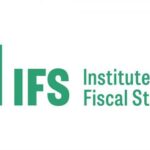
SEN system financially ‘unsustainable’ – NAO report
A National Audit Office report looking into the money spent to support children with special educational needs has concluded that children’s outcomes have not improved.
The report reported that 101 local authorities in England had overspent on their high needs block and 50% of children were waiting more than 20 weeks for an education health and care (EHC) plan.
There is less confidence in the system which is now supporting 1.9 million children and their families. Since 2015 there has been a 140% increase in the numbers of children with an EHC plan mostly relating to autistic spectrum disorders; speech, language and communication needs; and social, emotional and mental health needs.
NDNA submitted evidence to the report, pointing towards the importance of investment in a child’s life as early as possible.
Purnima Tanuku OBE, Chief Executive of National Day Nurseries Association (NDNA), said: “This report is alarming but not surprising for those working in early education. The NAO acknowledges that money invested early on in children’s lives can make so much more difference than in their later education, so giving financial support to children in early education and care settings must be a priority.
“The fact that half of children are waiting longer than 20 weeks for an education, health and care (EHC) plan reflects the realities we see in the early years sector. There are unacceptably long waiting lists for support services in many areas. And it is important to recognise the scale of additional needs that settings are supporting children with outside the EHC plan structure.
“Overspends in SEND spending are occurring year after year in the majority of councils. Our research tells us that councils often use underspends in their early years budgets to off-set those deficits in SEND budgets, meaning our youngest children are missing out.
“Professionals working in nurseries and other early years settings are best placed to observe and identify any issues that children may have. It’s this early identification which leads to early intervention that children need to fulfil their potential. For some children with additional needs, this early support can be enough for them to have a mainstream education with no further support.
“Early years practitioners need more training to assist them to identify children who need more help, but also local authorities need financial resources to get external help in place to meet those children’s needs as soon as possible. That currently is not happening, with many children waiting a year or more and nurseries paying to support children out of their own budgets.”
The report said that inspections completed before August 2023 found some good practice, especially for support in early years settings. However, local area plans were often poor quality, with better quality plans resulting from improved partnership working between families and health, social care and education professionals.
Ofsted reported insufficient qualified and experienced staff within many early years settings, which – combined with difficulties accessing specialist services – impacted children’s progress.
Across early years, DfE has focused on training SENCOs, aiming to train up to 7,000 by August 2024. However, it is behind schedule, with 3,937 settings having a qualified SENCO at the end of June 2024, although 6,772 settings had staff registered for the training.
Among the report’s recommendations it suggested the need to:
“Improve the data, incentives and processes to ensure children’s needs are identified and supported as early as possible, particularly within early years.”
Read the full report here
Similar Articles
Purnima Tanuku CBE to leave NDNA following over 20 years’ leading the organisation

IFS: This year’s funding rates 22% lower in real terms than in 2017


